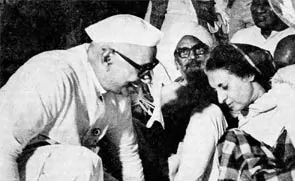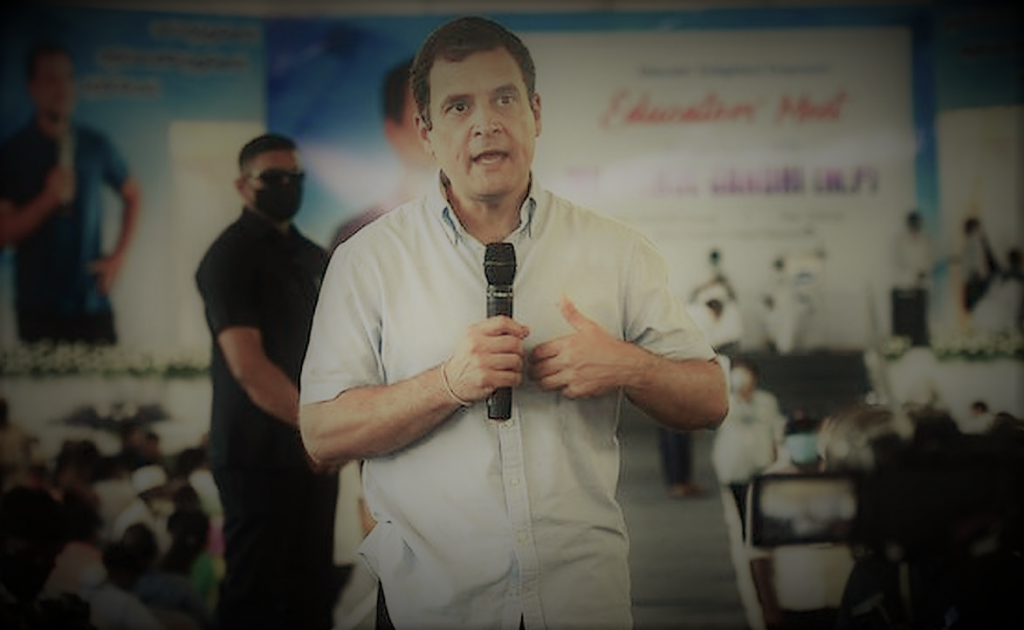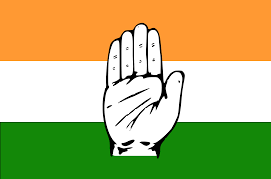by Prof. Pradeep Mathur
Is umpteen-time divided Congress party on the verge of another split? The answer is both yes and no. The reason is simple. While the members of the Group of 23 who wrote a joint letter to the party’s interim president Sonia Gandhi last year are reluctant to press the matter and force a split, Mrs. Sonia Gandhi, who raised the Congress from the ruins to which it had been reduced by the Narsimha Rao-Sitaram Kesari combine in late 1990s, is most unwilling to see anyone leave the house. Between Rahul Gandhi’s desire to give a new orientation to the party with a new team of his own and the desire of the Old Guard, now organized in the form of Group of 23, to retain their hold on the organization, lies Sonia Gandhi’s concern to see that her house does not get divided. Since out of political compulsion or regard for Sonia Gandhi, neither side wants to precipitate matters, the stalemate continues. The end result is a checkmated war in which battle lines are drawn but neither side wants to fire a shot while aspiring to subdue the enemy and emerge at the top.

In fact it is a repeat of the history for the Congress. In late 1960s Mrs. Indira Gandhi was similarly pitted against the old guard, many of whom had participated in India’s freedom struggle against the British colonial rule. There was a general perception that Mrs. Indira Gandhi was inexperienced and incompetent and her only qualification to lead was that she was daughter of Prime Minister Jawaharlal Nehru. Her detractors called her gungi gudiya (a dumb doll) much in the same vein as Rahul Gandhi’s detractors call him Pappu.
However, the present scenario is different in two ways. One there was no Sonia Gandhi to stand between the two warring groups and further, many among the Old Guard there were genuine mass leaders with strong mass base. Barring a few exceptions, almost all the Congress leaders in the Group of 23 have no mass following. Basically drawing-room politicians, they are media-built stars who have acquired their present stature more by sitting in TV studios rather than working at the grassroots level. Without the Congress party banner and endorsement of the Nehru-Gandhi family it would be very difficult for them to win an election.
A split is nothing new to the Congress. The oldest political party has scene splits many a time in its long history and after every split it has surprisingly emerged stronger. For all we know those who think that a split will lead to the doom of the Congress may be proved wrong again.
In the present scenario the point of interest is if it takes place what sort of a split it would be. Will it be a vertical split as in 1969 when Mrs. Indira Gandhi took on the combined strength of the old guard and carried the party with her or it will be sort of the 1994 split when disgruntled Congress leaders like Arjun Singh and Narayan Dutt Tiwari broke away from the Congress headed by Narsimha Rao to form All India Indira Congress and returned to the parent organization after the end of the Narsimha Rao era.
But for all that we can foresee the present situation, which looks like a delayed match between two sides of the same team, may not be a repeat of the history of the Congress party. And the reason is very different. Whatever the level of mutual differences nobody in the Congress, unless he/she is a Trojan horse, would like to weaken the most formidable roadblock to the Narendra Modi-Amit Shah juggernaut which is out to demolish the basic tenets of Congress ethos and its idea of India. Not only Congress leaders but the entire public opinion on the Left of Centre political spectrum is veering round to the view that Modi’s BJP can be checkmated only by joint action. The unwillingness of the Group of 23 to force the issue to the point of a split must also be seen in this context.
Like all institutions the Congress too is passing through a generational change and as is natural, a new generation of young leaders comes up with new ideas and picks up new friends and new supporters. Obviously the 23 leaders who wrote the open letter to Sonia Gandhi do not understand this or are uncomfortable with the idea of losing their clout. Therefore, they are having problems with Rahul Gandhi and are not happy at the prospects of Rahul Gandhi leading them in future. Apparently Rahul Gandhi is also not comfortable in their company.

It is obvious that there is a big trust deficit between Rahul Gandhi and the members of Group of 23, and both sides have their reasons. While the Group of 23 thinks that Rahul is immature and lacks competence to lead the party and secretly blames him for the party’s poor showing in the 2014 and 2019 elections, Rahul suspects the sincerity and commitment of these leaders towards the party. And he has his reasons too which cannot be brushed aside.
However, if the Congress party wants to come out of the bind it will have to put all this stuff on the back burner. For giving a serious fight to the BJP in the 2024 Lok Sabha elections the present stalemate in the party cannot continue any longer. Split or no split the Congress will have to break the stalemate if it wants to survive. The hour of reckoning has arrived for the party. In these circumstances the Congress has no other option but to reinvent itself. As such when the country’s politics is totally polarized between two opposing ideological streams the rejuvenation of the Congress is the need of the hour.
Prof Pradeep Mathur is a veteran journalist, and former professor and Course Director at Indian Institute of Mass Communication, New Delhi. He is the Chief Editor of Align India News Portal.


